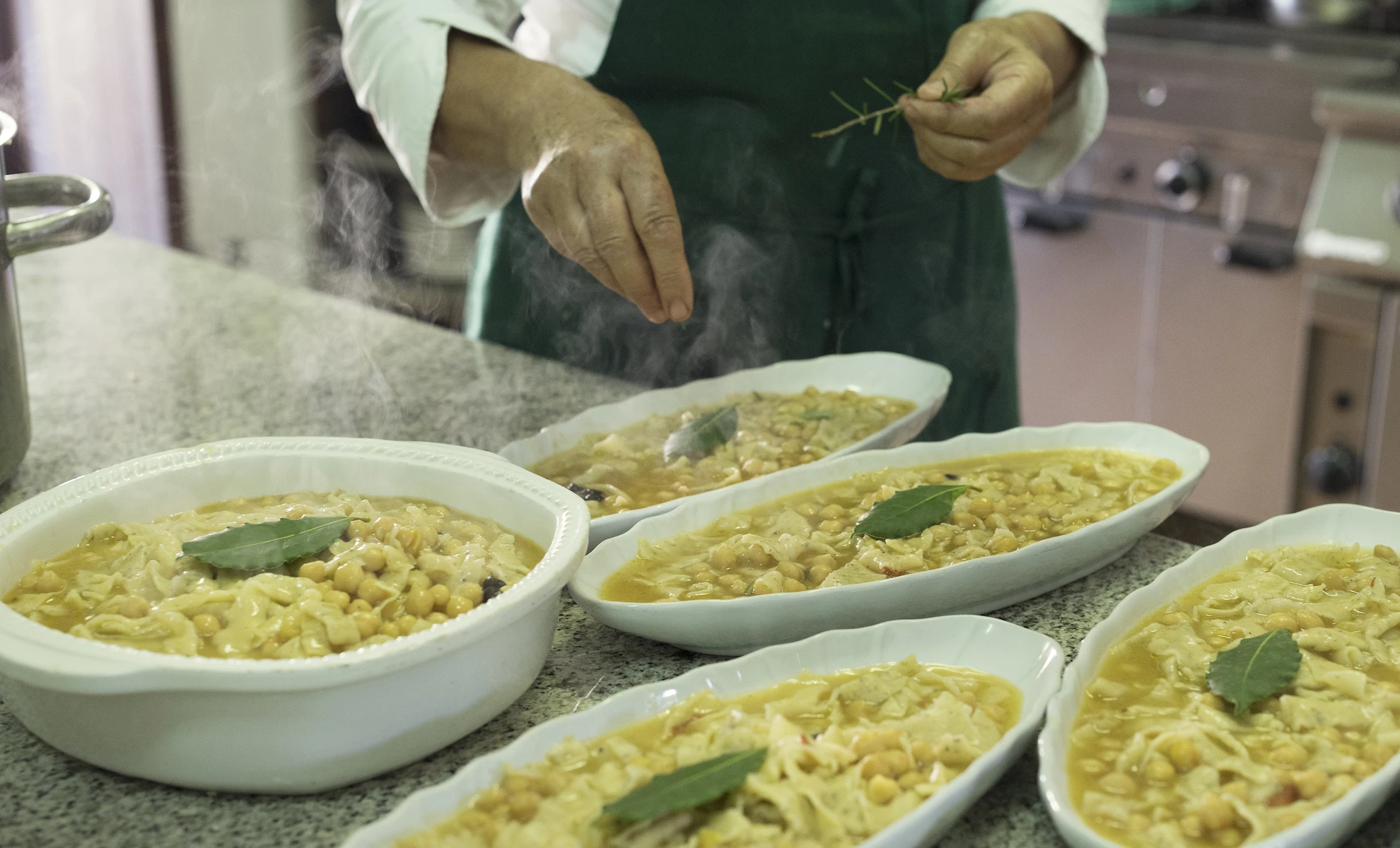The road is impervious and stony, but while we walk slowly we may look at the landscape more carefully. The Alento river flows quietly before our eyes, indifferent to the worries of everyday city life that seems to be far more than 65 km away from Salerno.
The entry of Corbella farm | Ph. Anna Monaco - Trentaremi
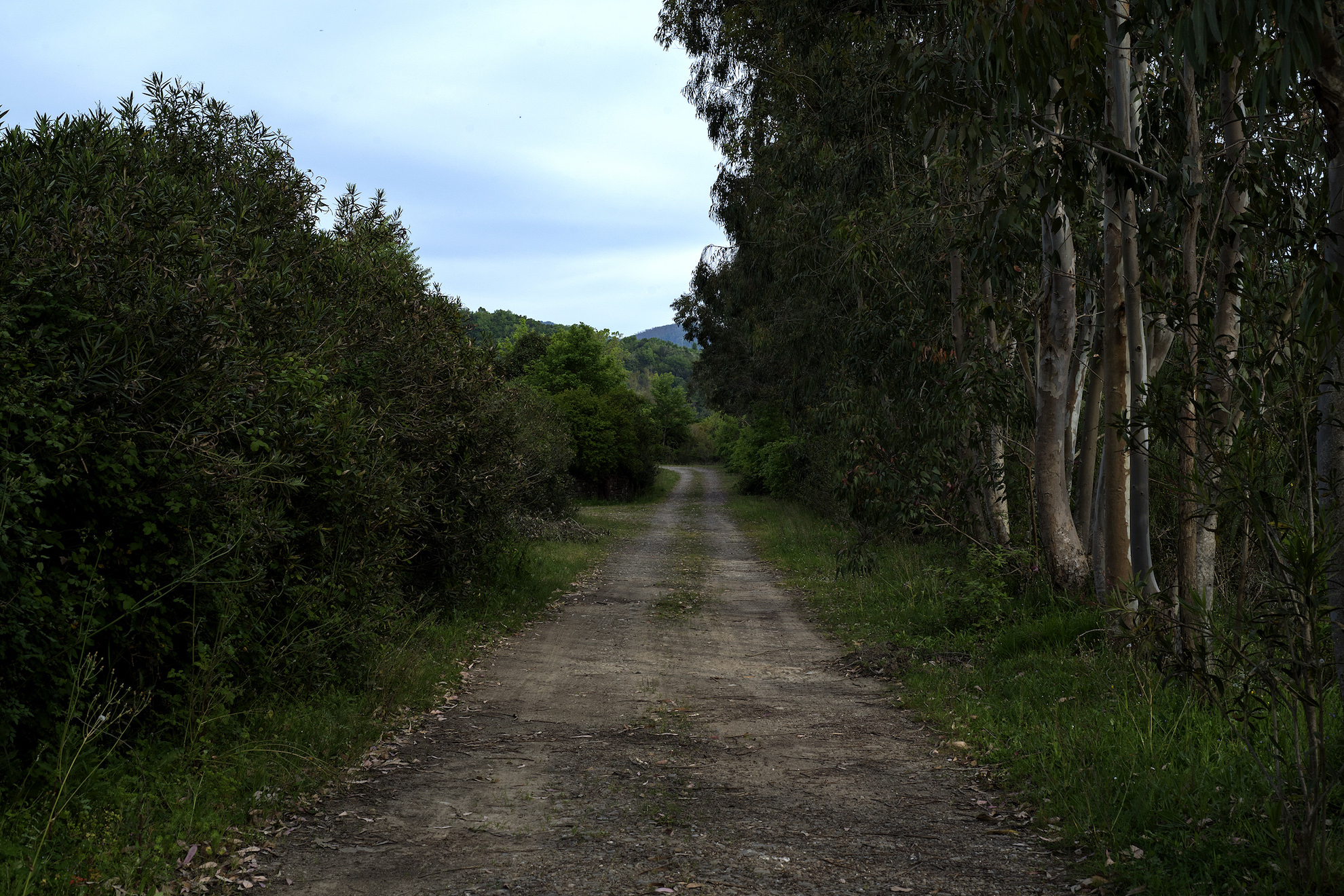
The district of Cicerale overlooks the inland areas of Cilento, where organic farming gives products of excellence that are the flag of this land. The name of Cicerale is descriptive: it is home to chickpea, a legume that here reveals all its organoleptic characteristics. Dark in color with low humidity and great minerality, smaller than other clones of the same family, this chickpea is the king of the Mediterranean Diet.
«A precious ally for our health, as well as for taste. Its natural flavor allows us to cook it without adding salt». The chef Giovanna Voria talks about it, under a huge patio surrounded by the profile of Mount St. Leo and the wild herbs of the Mediterranean vegetation.
It rarely happens to meet a woman who can be by herself an expression of a whole land. Chef Giovanna is one of them. Ambassador of the Mediterranean Diet in the world, Giovanna welcomes us to her farm in Corbella, a few km from the downtown of Cicerale. Forget about telephones, wifi and the internet: in Corbella the anxiety of always being connected bumps into the absence of any electromagnetic signal. Here one runs only to the rhythm of Nature.
the famous chickpeas of cicerale | Ph. Flaviana Frascogna – Trentaremi
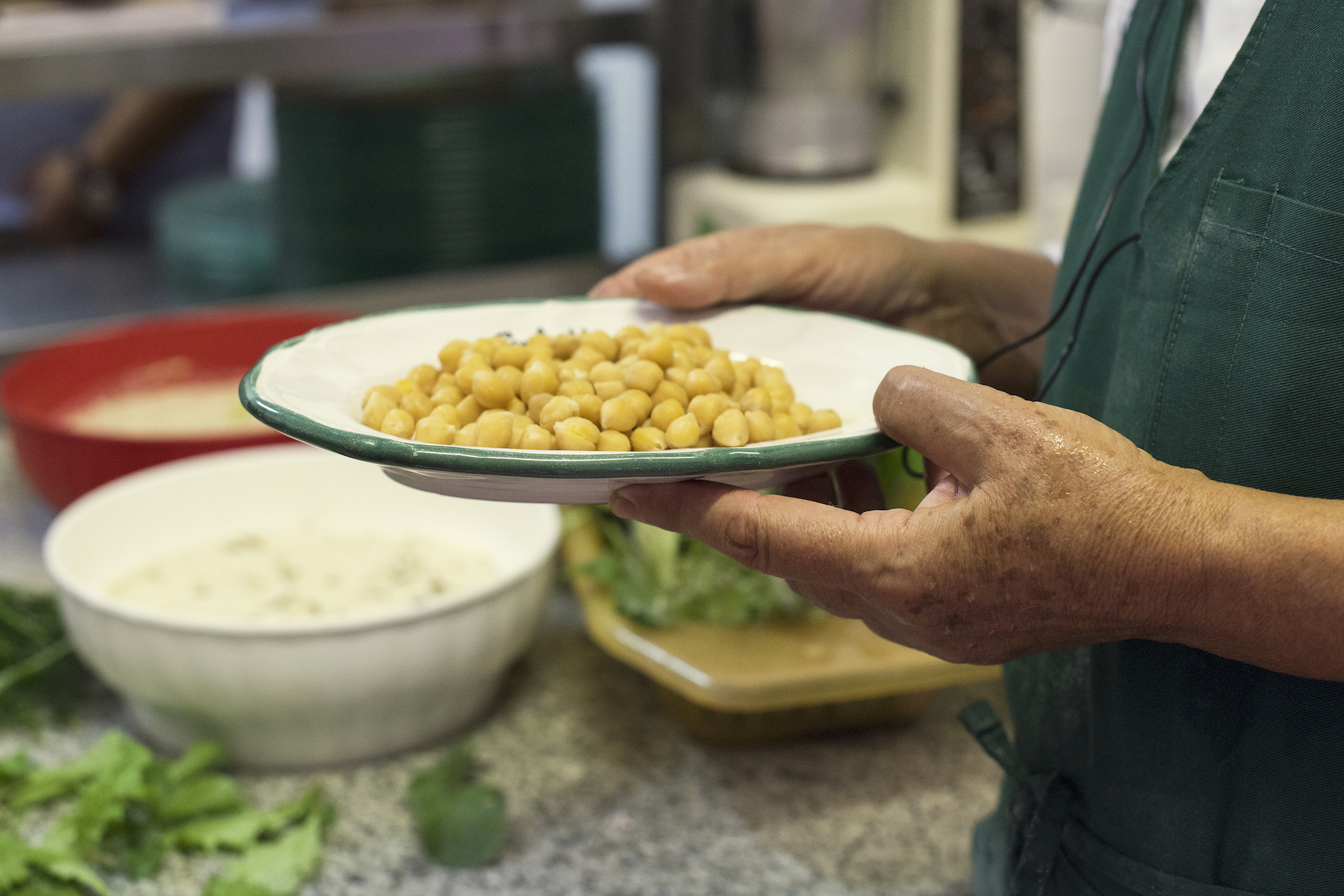
Giovanna is engaged in a cooking class with guests from Russia, just to confirm that her brand is really known everywhere. The dish she is cooking today is a typical one of this area: lagane (special kind of handmade pasta) and chickpeas. «We knead the lagane with water, flour that is not the refined double zero type, and with the addition of other chickpea flour».
Her cuisine is a journey through time, like her stories. «The lagana is a kind of pappardella very coarsely hand-cut. As you may see, the edges are not straight, but jagged. Already in ancient Greece they were well known: they were prepared in the form of a dough disk, mixed with water and flour and then cooked on a hot stone. Then it was cut into strips, as we are doing now».
Processing lagane | Ph. Flaviana Frascogna – Trentaremi
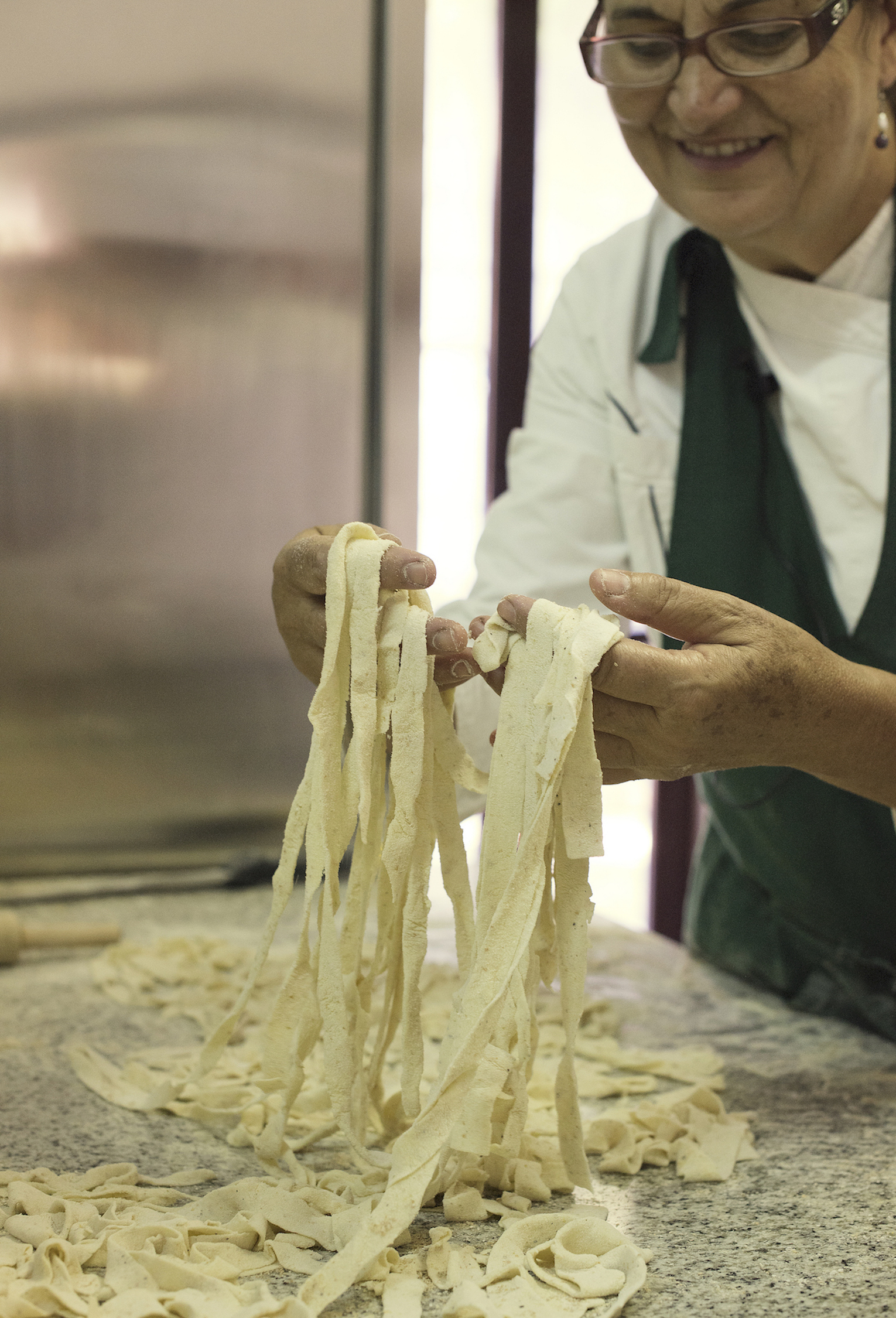
Ph. Flaviana Frascogna – Trentaremi
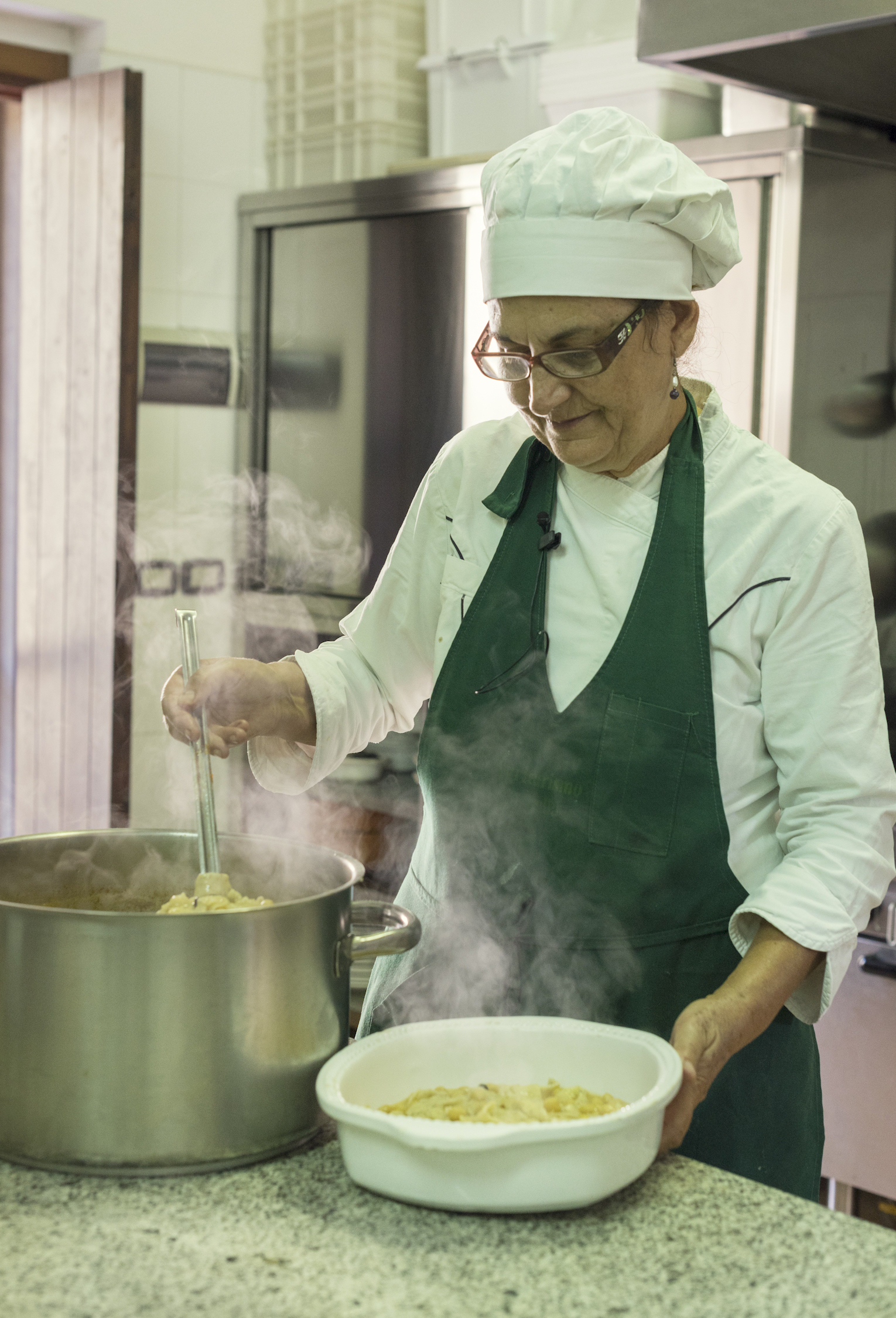
The recipe that Giovanna proposes to her guests is the very ancient one of Cicerale, «of more soupy consistency than the soups we use to eat today», she explains. The chickpeas are dunked from the night before, then are boiled with celery, bay leaves and onions. To get the more soupy consistency, it is necessary to brown oil, garlic and chilli in a pan, which will be then poured into the pot with chickpeas at the end of cooking.
This course tells the story of a people, a place and a woman more than any word. With the basket in her hand and unique perseverance, Giovanna goes to the Corbella farm very early in the morning, when the harvest of chickpeas gets to the hearth. The remembrance of farming and of all familiar and popular rituals relive around it, the memory of an humble gesture, live in this corner of the land, very far from anything to define the city daily life.
Lagane and chickpeas by Giovanna Voria | Ph. Flaviana Frascogna – Trentaremi
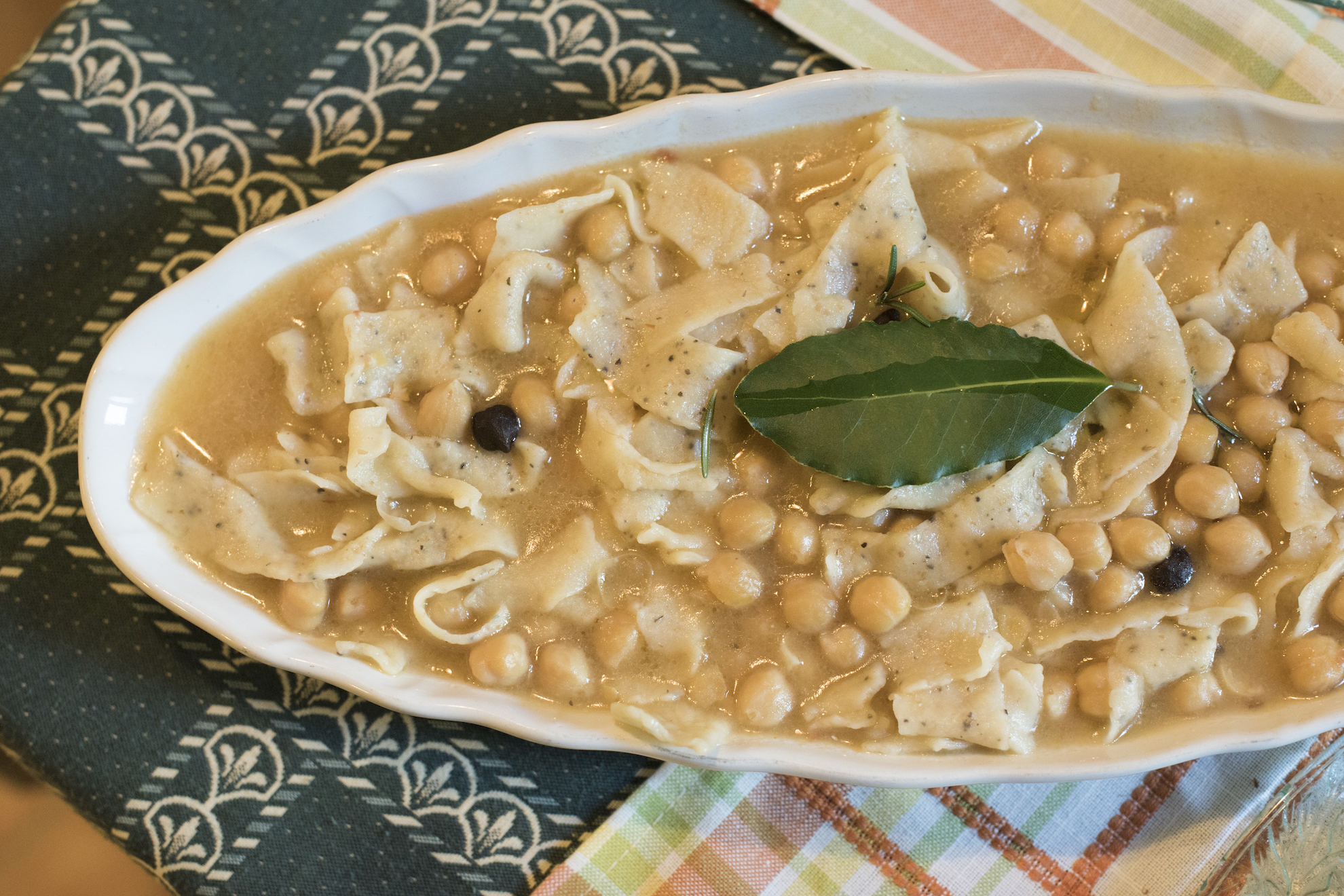
«Someone could consider my choice “radical”, considering also the fact that it’s not easy to reach Corbella. But I’m not just cooking here. I’m working hard to tell people what it means to belong to a community with its history and traditions. Pasta, beans, fruits, wild herbs, free-range chicken: I have never served industrial food to my guests and I never will. Cilento is so inspiring for a chef that it would be even stupid to think so» Giovanna says.

